Someone Asks How “A Disease With 1% Mortality” Could Shut Down The US, Gets An In-Depth Explanation
“How can a disease with 1% mortality shut down the United States?” Writer and business owner Franklin Veaux tackled this question on Quora by going into detail about the real dangers of Covid-19 that go beyond the number of people who lost their lives.
Keep in mind, dear Pandas, that it’s very difficult to calculate the actual mortality rate of the coronavirus, especially since we don’t know the real number of people infected. You can get wildly different numbers depending on the source, so it’s easy to get confused. There are also different ways to calculate these rates and they mean different things. Talking about the case fatality rate is different from the crude fatality rate and the infection fatality rate.
However, even if the fatality percentage is low, as Veaux points out, the actual number of people that the virus kills, damages, and affects is still huge.
Franklin Veaux analyzed why Covid-19 is so dangerous and what its theoretical impact could be

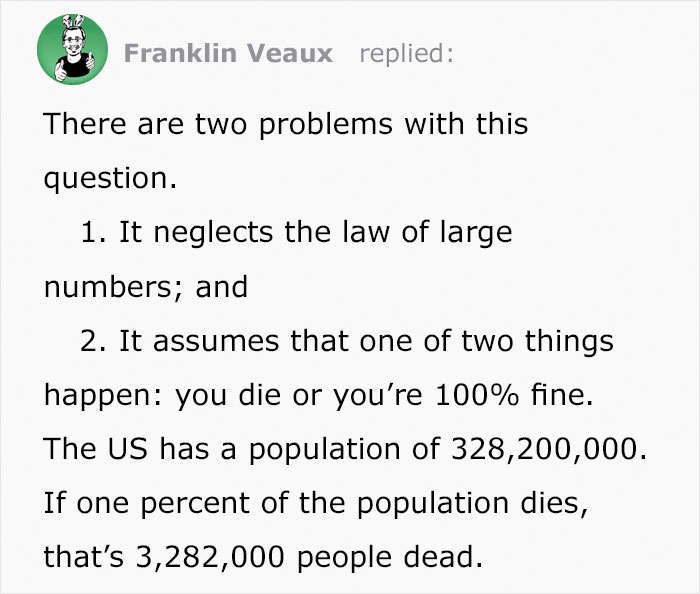
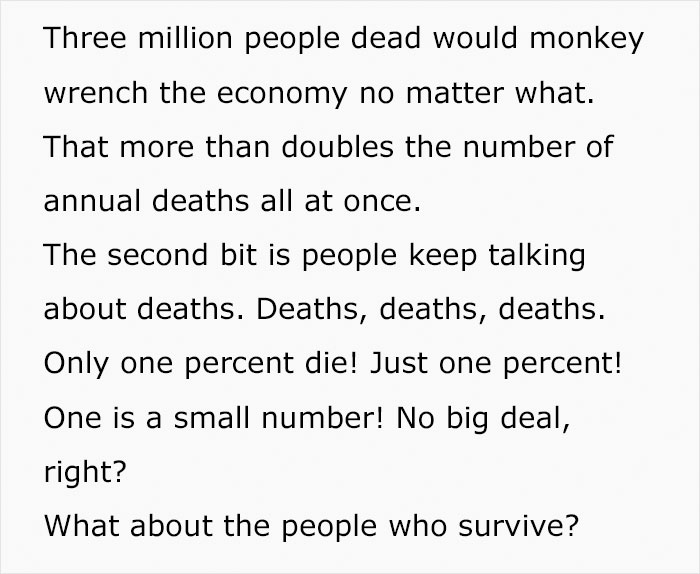
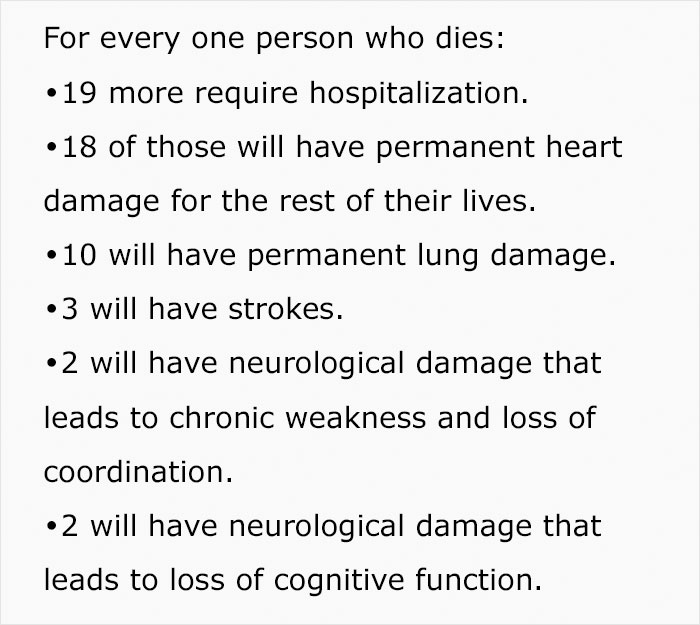
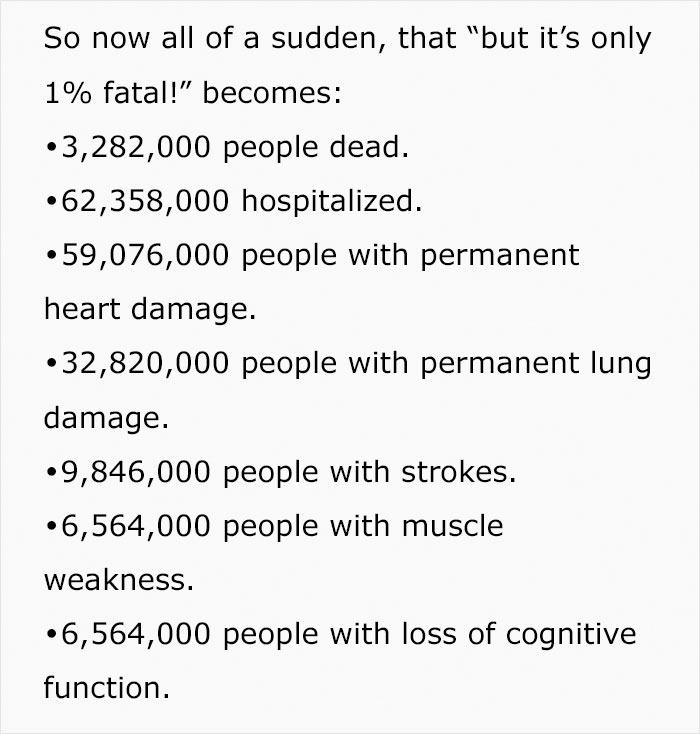

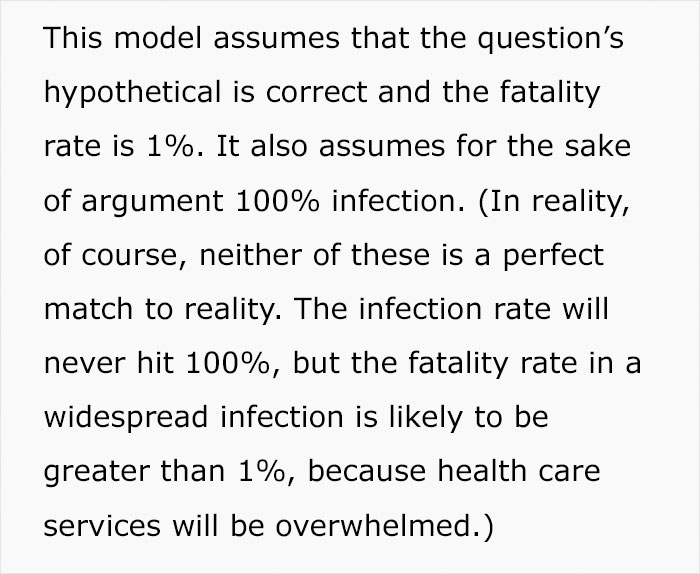
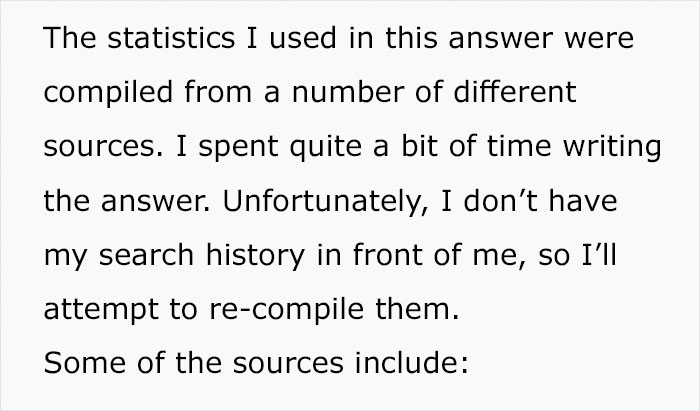
Veaux used various studies to extrapolate the numbers of people who would be hospitalized and would have permanent damage by assuming a hypothetical infection rate of 100 percent and a mortality rate of 1 percent.
In other words, his infection numbers are a worst-case scenario (though he calls them conservative) but they illustrate why it’s important to take care of your health and wear a mask in public spaces.
The writer’s numbers could also be slightly off because of the natural limitations of the studies that he references. The coronavirus pandemic is still relatively new and more research needs to be done before anyone can state for certain that for every X people who die from Covid-19, Y will be hospitalized, and of those, Z will have conditions A, B, and C. Rushed small-scale studies can give us the ballpark but not the specifics.
Some of the sources include:
What we know (so far) about the long-term health effects of Covid-19


Here are two of the studies that Veaux references in this bit: you can find them here and here.
What We Know About the Long-Term Effects of COVID-19

The writer provided three more links for this part of his answer: you can find the sources here, here, and here.
Lifelong Lung Damage: A Serious COVID-19 Complication


He added three more links in this chunk of his answer. You can find his sources here, here, as well as here.
What we know (so far) about the long-term health effects of Covid-19
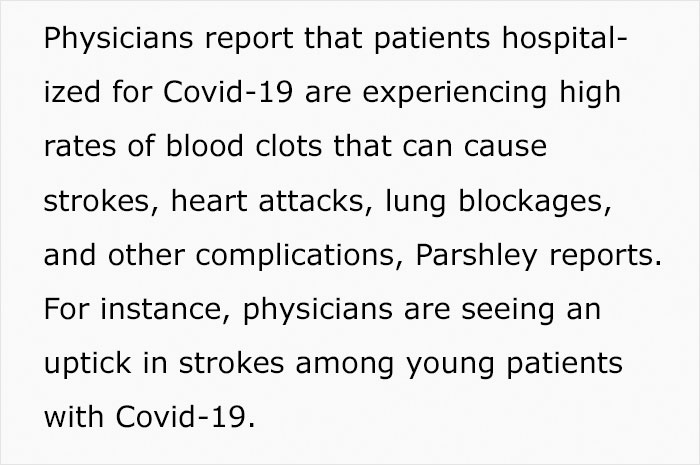
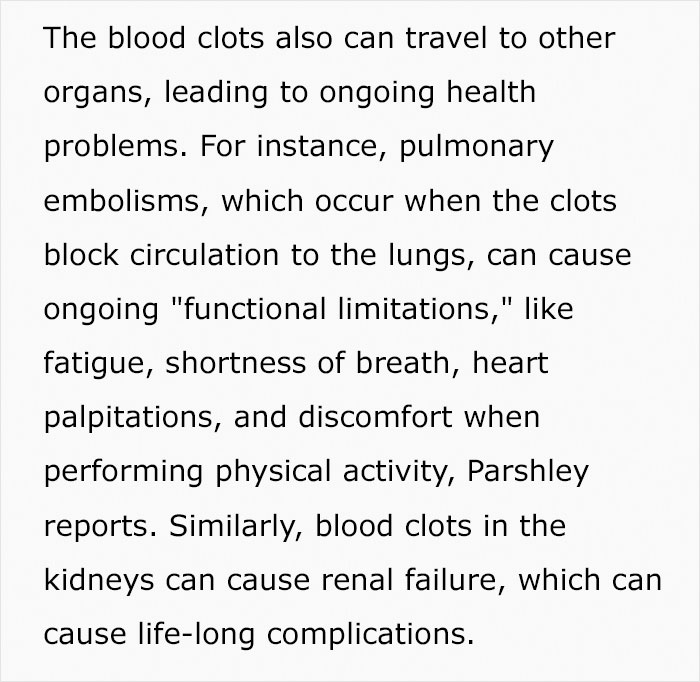
Heart damage



Veaux added two more studies about heart damage which you can find here and here.
The number of people who died, were hospitalized, and were affected would also have to be adjusted by time, as well as by geographical location. Do we focus on just the newest Covid-19 numbers by referring to a rolling 7-day-average? Or do we take into account the aggregate number over the entire pandemic since it began? What regions, countries, and states are we looking at, and at what point during the quarantines? There are a lot of specifics that we ought to keep in mind if we want to know the full accurate picture.
So while Veaux’s analysis of the situation required a lot of effort on his part and his sketches of the general picture as to why the coronavirus was able to shut down the US, take the actual numbers he presents with a grain of salt—he’s not a scientist (nor does he claim to be one).

Image credits: Franklin Veaux
According to the World Health Organization, there are currently over 12.88 million confirmed Covid-19 infections in 216 countries, areas, and territories all over the globe. More than 568.5k have lost their lives because of or while infected with the virus. Over 3.28 million cases of infections were confirmed in the US, and over 134.7k lost their lives. Meanwhile, Johns Hopkins University claims that there are over 13.1 million confirmed cases globally, more than 573k people lost their lives; of these, over 3.36 million cases and 135.6k deaths are in the US.
It’s natural to have a lot of questions during the pandemic, especially when different sources have slightly different statistics: if you want to check out the various myths surrounding the coronavirus outbreak, have a look at the WHO’s page right here.
Here’s how people reacted to Veaux’s informative answer on Quora














No comments